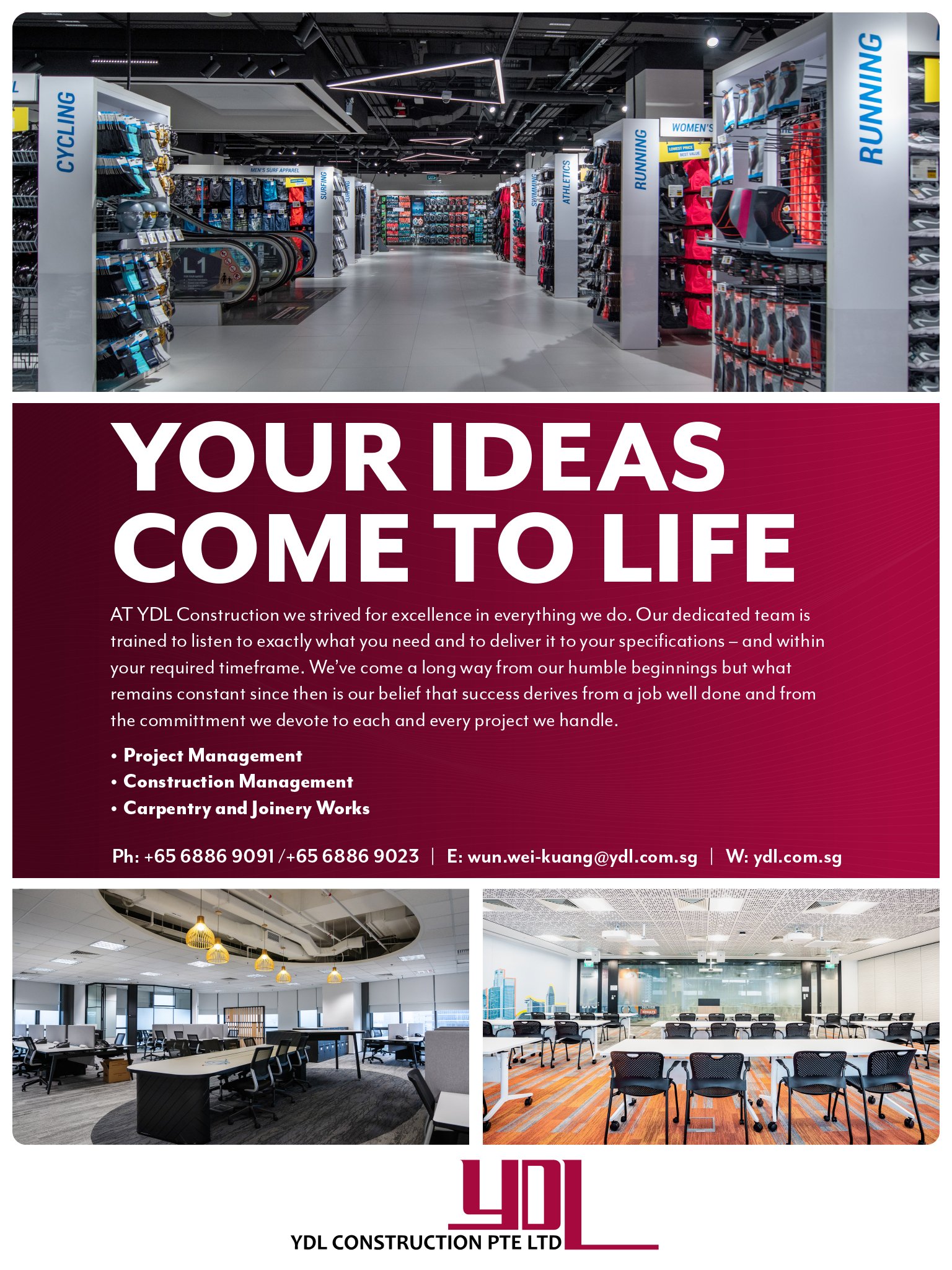During the global pandemic, sales shifted online as stores shuttered and shelter-in-place orders kept customers at home. Predictions surfaced of sales remaining online and in-store shopping never returning to pre-pandemic levels. Stephan Veyret expressed scepticism over the dire predictions – even though his company Decathlon, the French sporting goods retailer, enjoyed robust online sales.
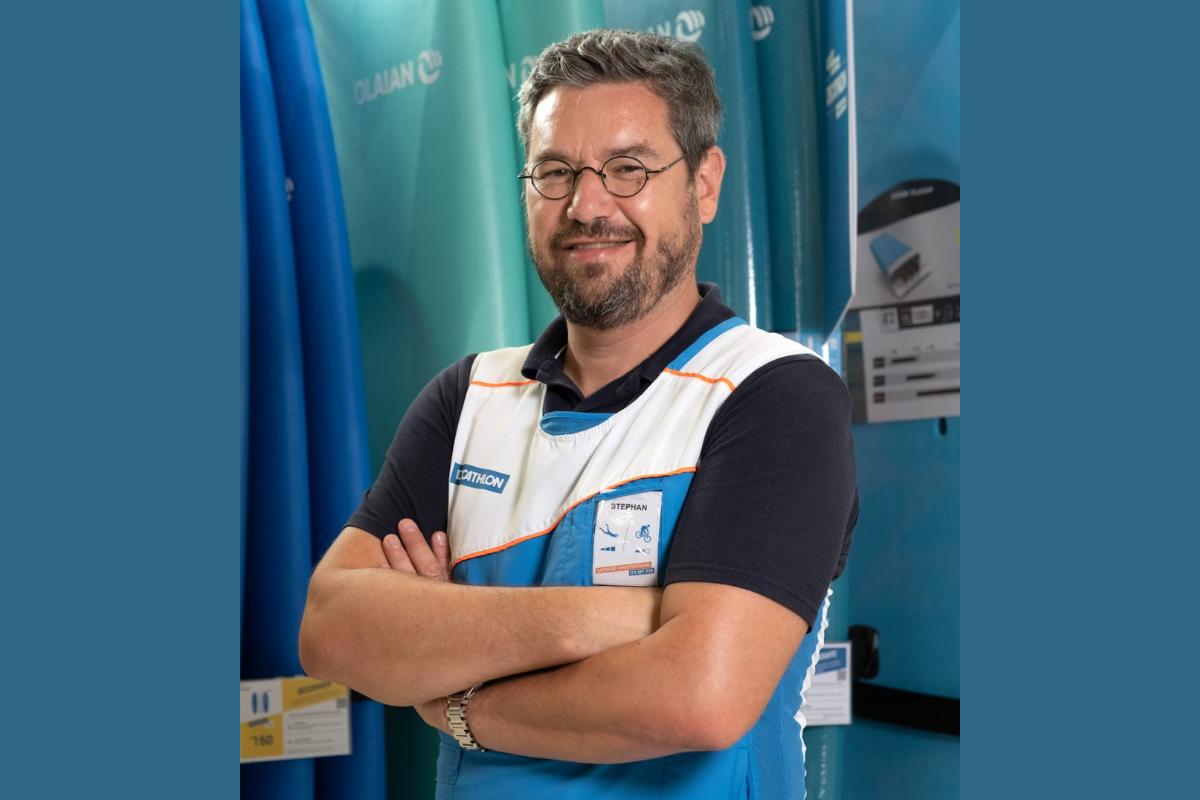
“I’m a strong believer that the store is not dead, that consumption will not go 100 per cent digital. I don’t believe in that,” Stephan, CEO at Decathlon Singapore, shares with The CEO Magazine.
“This is a strength that we’ve developed during the pandemic,” Stephan says of online selling. “Yet I’m convinced that our strategy should be focused on our stores. Let’s bolster the existing strengths that we already have.”
Stephan oversaw Decathlon’s introduction to Singapore, where it is has grown to six stores since 2016. The retailer has also opened nine ‘Click and Collect’ outlets, to allow customers to order online and retrieve their orders at the outlets. “It brings our products closer to customers,” he says.
But retailing remains the focus for Stephan, who says the in store experience cannot be easily duplicated online. That’s especially the case when it’s supported by experienced staff providing topnotch service. “Let’s strengthen the experience to give people a reason to come to the store. Let them have an experience, provide them with services and engage their passion for sports,” he says. “That’s the added value I see in continuing to develop stores.”
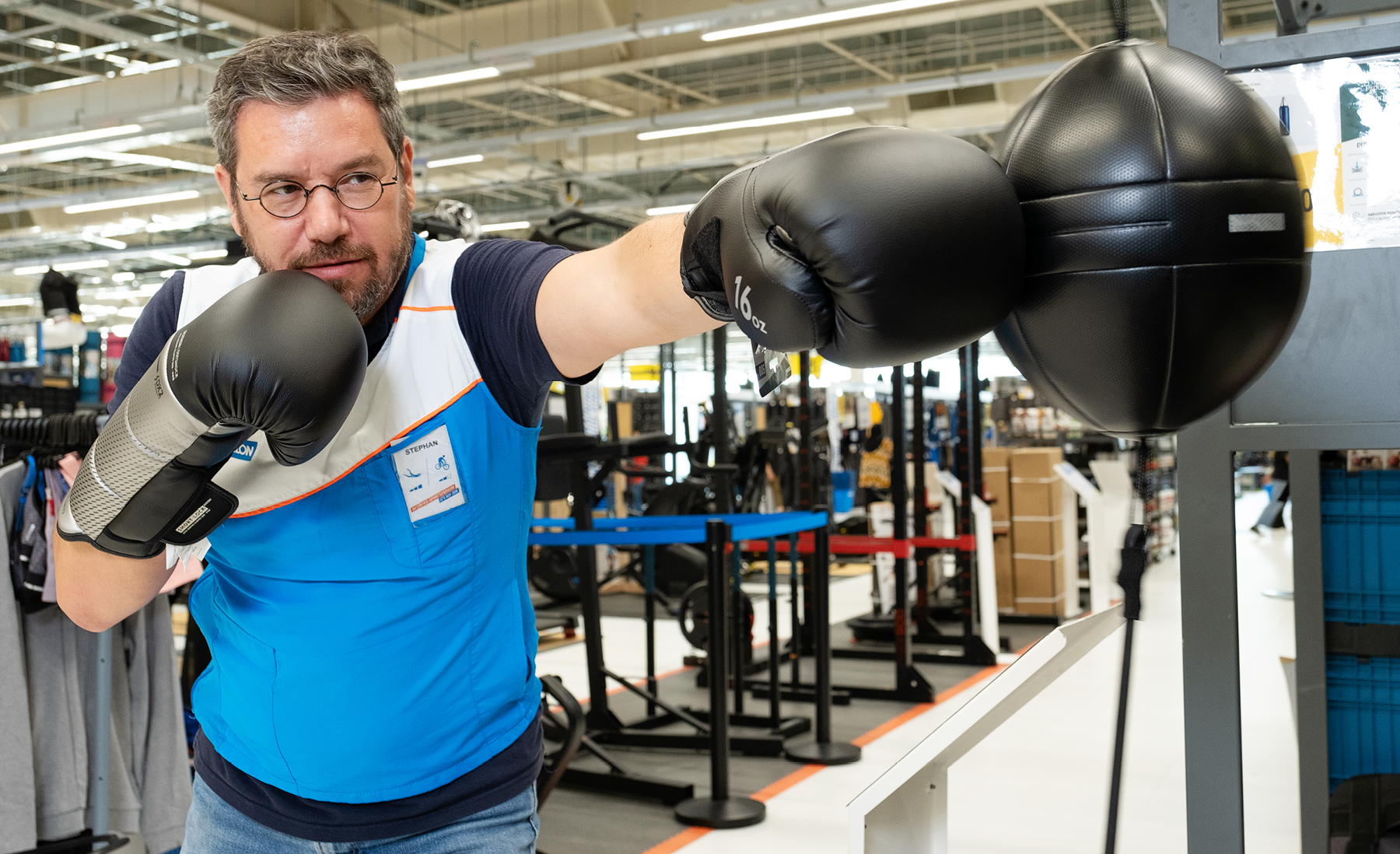
I’m a strong believer that the store is not dead, that consumption will not go 100 per cent digital.
Based in Lille, France – where it was founded in 1976 – Decathlon fuels the passion for sports with over 1,700 stores in some 70 countries. Stephan joined the company in 1998 as Legal Manager in China before taking on positions in France, Germany, the UK and ultimately Singapore. “How cool is it to work for a company that offers this type of progress and opportunities,” he gushes. “Wow, what a journey. I’ve already lived 20 different professional lives.”
Part of his satisfaction with Decathlon comes from its approach to hiring. Rather than headhunting, he says, the company invests in personnel. He recalls a manager telling him, “I didn’t recruit you for what you are doing today. I’ve recruited you for what you’re going to do in 10 and 20 years”.
Decathlon take an idiosyncratic approach to management too. Stephan describes being given autonomy to make decisions – so long as it’s within budget and operations parameters. “We have a culture of autonomy,” he says. “As a CEO, it’s basically as if it is my own company.”
Since arriving in Singapore, Stephan has promoted a corporate culture of listening. Staff are treated as long-term partners, whose input is sought and valued. Each member of the Decathlon team meets with management regularly for up to a full day to understand what is going positively and what is not. “When you listen to the teams, they will say, ‘There is a part of me in the project. So this is also my project.’ That’s when leadership becomes super easy,” he says.
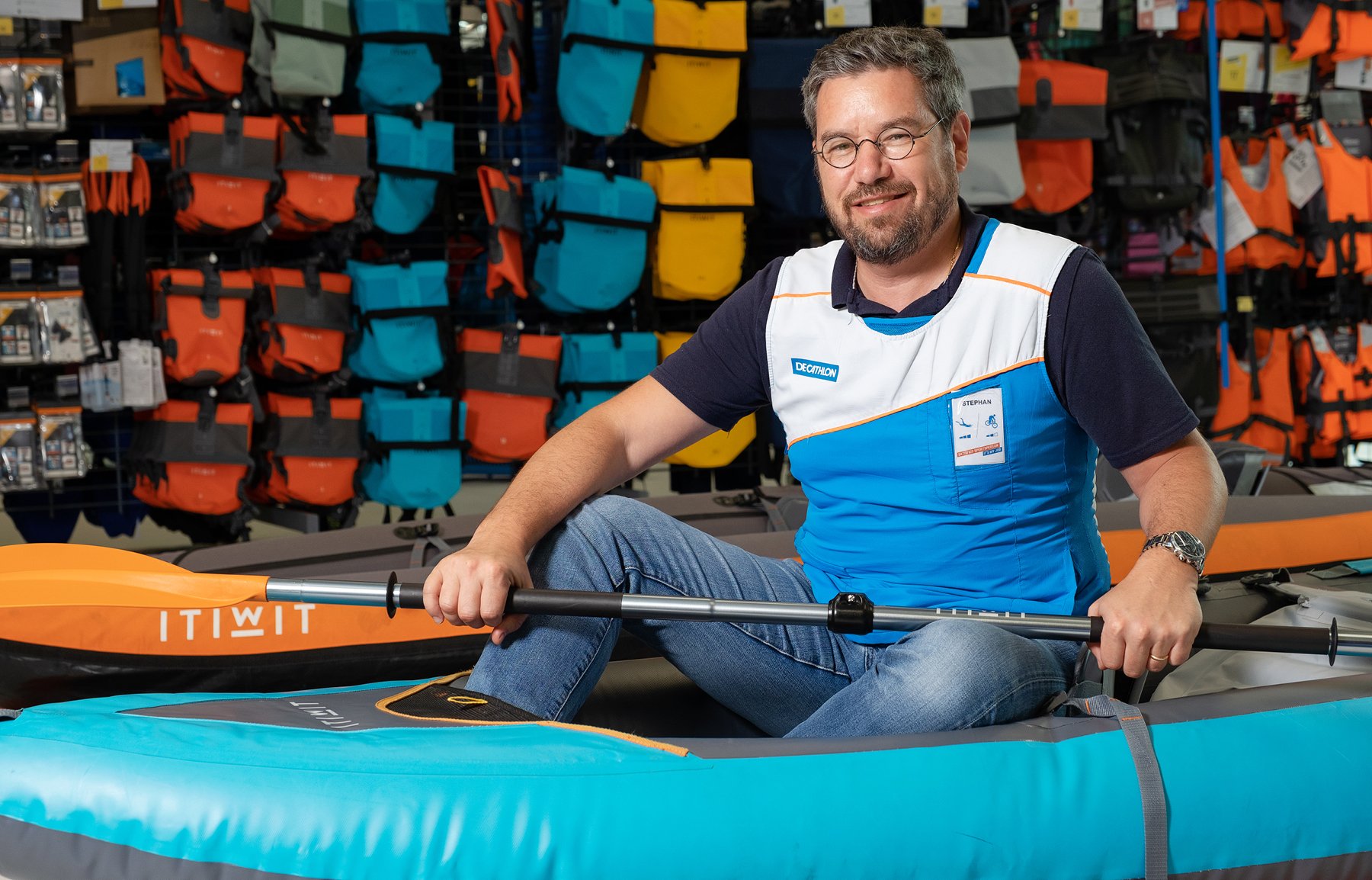
Listening also makes projects – such as starting from scratch in Singapore – responsive to local sensibilities. “This is not the project coming from Decathlon headquarters in Lille,” Stephan explains. “This is a Singaporean project for Singaporeans. They decide themselves.”
Decathlon’s difference as a sporting goods company includes its commitment to reduce its carbon footprint and promote what Stephan describes as the “circular economy”. As much as is possible, Decathlon uses green energy – although it’s been tough to get to 100 per cent usage in Singapore, he says. It’s also a half measure in his estimation.
“When we talk about sustainability, very often, what I hear is corrective measures,” he says. “The biggest challenge is to change the business model and say, ‘Instead of in 10 years, selling 10 times more products to 10 times more people,’ it’s, ‘How do I generate from each product 10 times more value over the next 10 years?’”
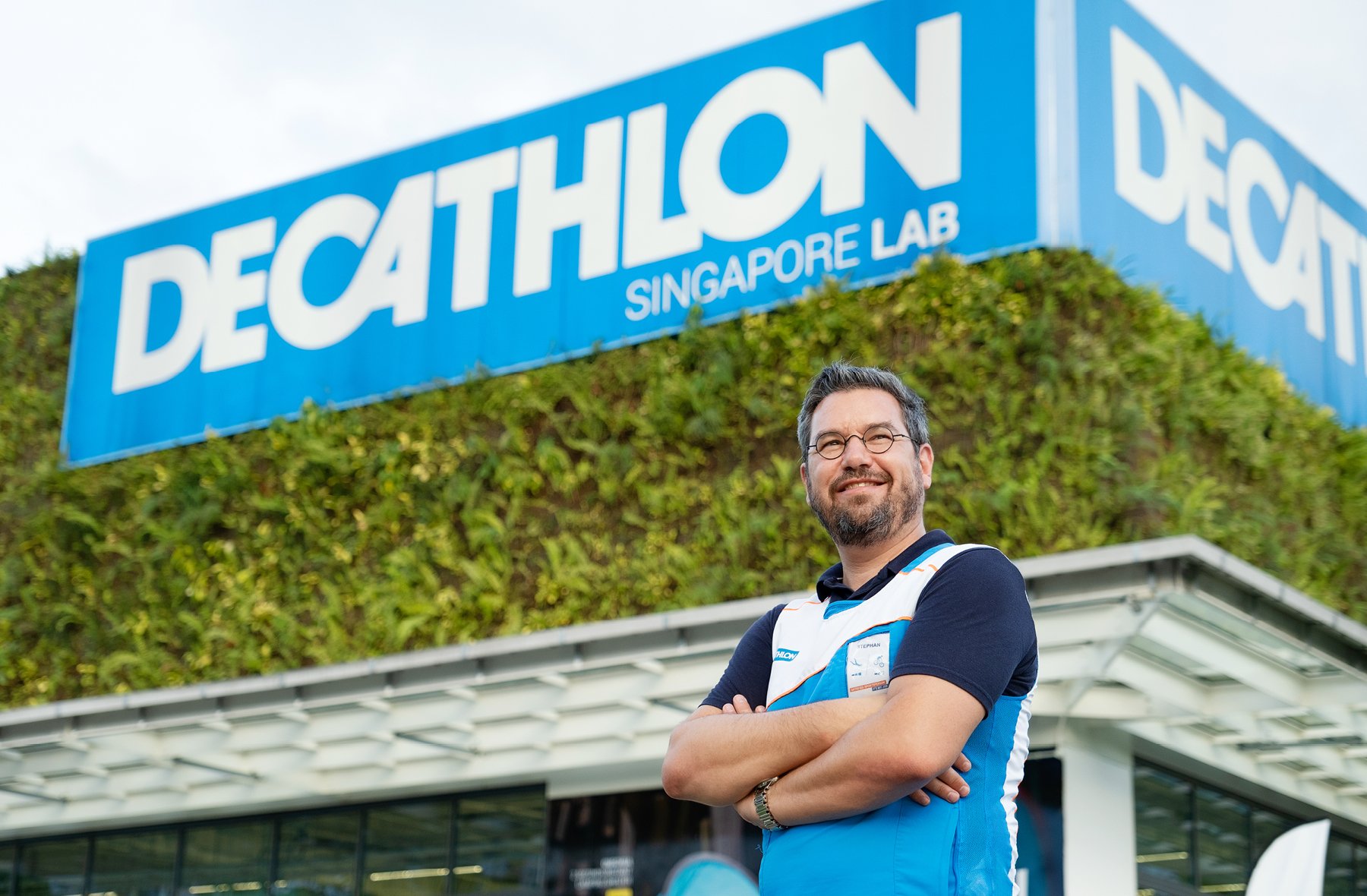
When you wake up and say, ‘Today, I’m going to make sports accessible to more people’, it’s much easier to be inspired.
Decathlon has implemented measures to ruthlessly cut waste. It also services, recycles and re-uses many of the items it sells. Stephan cites bicycles as an example. Decathlon takes customers’ old bicycles as a trade-in for a new bicycles, then uses the trade-ins for parts. “It extends the life cycle to something that is almost forever,” he says. “So it means we’ve sold the product once, then we take it back and sell it second-hand. And we can also rent it.” Stephan says of the company’s environmental commitment, “The outside world is our playground. If we want to continue to play sport, we have to preserve our playground. So this is not an option.”
Moving beyond the pandemic, Stephan envisions Decathlon shifting from traditional retailing to becoming “a sports ecosystem”, which adds value to products being sold in its stores. Examples, he says, might be directing a customer purchasing diving equipment to a travel agency, or having a service company repair bicycles in customers’ homes or offices. “It’s how to build this ecosystem of services and products around Decathlon to move from the Decathlon store into the Decathlon ecosystem, which is relevant for sport and the importance of sport for Singaporeans.”
The ecosystem also involves promoting participation in sports within Singapore – with Decathlon already working with Sport Singapore. “Sport is pleasure and brings benefits,” Stephan says. “When you wake up and say, ‘Today, I’m going to make sports accessible to more people’, it’s much easier to be inspired.”
YDL Construction

